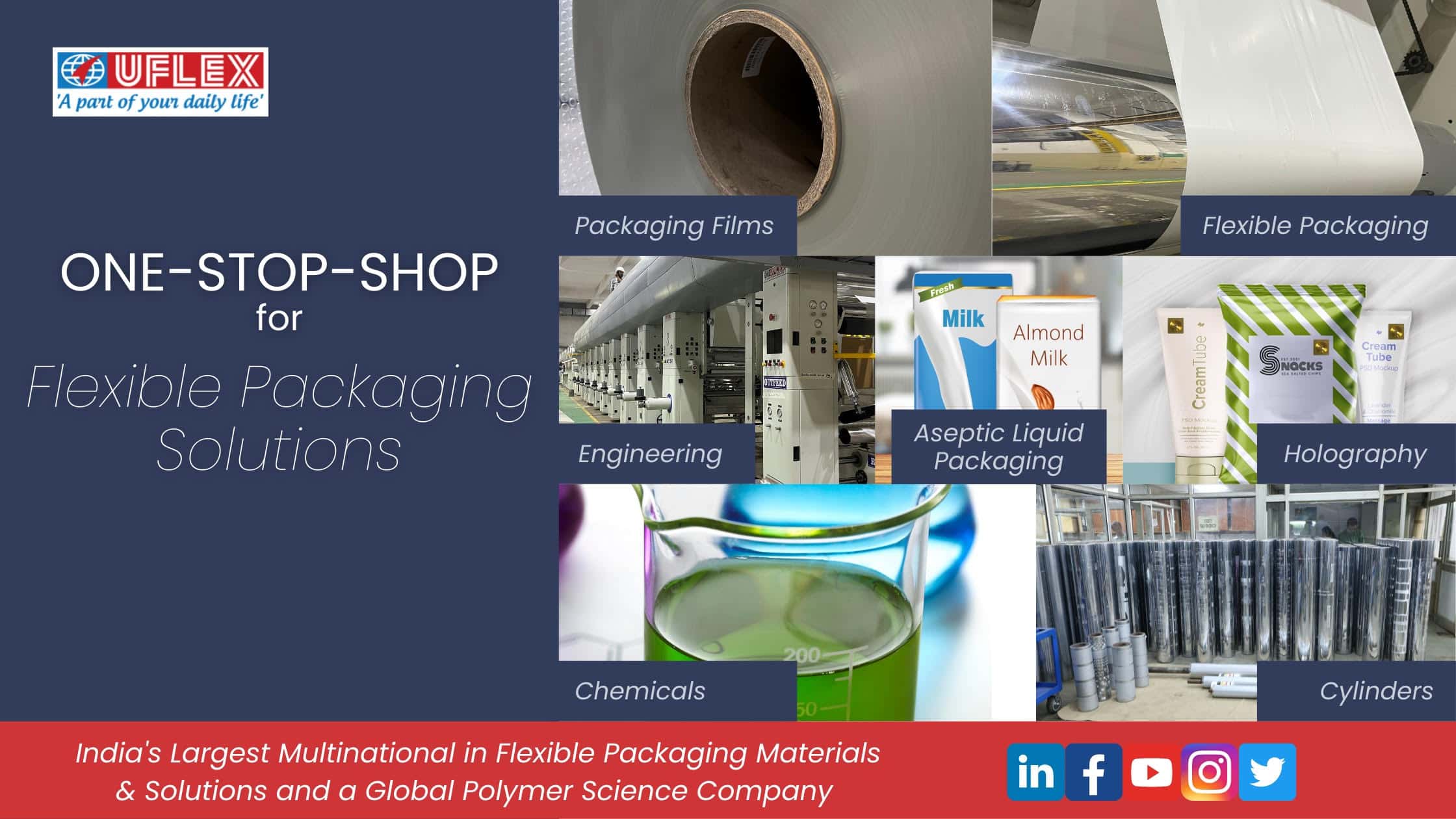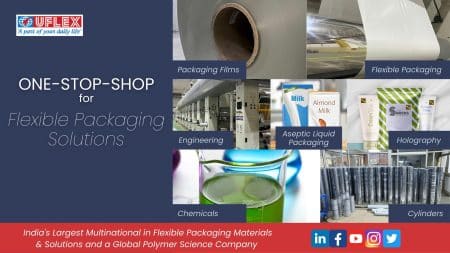The National Green Tribunal recently took the view to curbing plastic packaging since it was potentially hazardous to the environment, according to the tribunal. At the end of the stick, are all “multi-layered/plastic packaging” and PET bottles, which covers nearly every item of daily use, other than those that come in tins and glass bottles. UFlex Ltd. India’s largest flexible packaging manufacturer in its petition to the Tribunal has refuted charges of flexible packaging being a threat to the environment or health.
The Central Pollution Control Board (CPCB) listed plastic under ‘Green category’ due to its least polluting nature as it is recyclable and safer than aluminum, glass & paper that are more hazardous to the environment.
Advantages of Flexible Packaging
Flexible packaging has made lives easier for on-the-go consumers with its high standard of functionality and sustainability. This factor is what has helped stoke the flexible packaging industry all over the globe. In the Indian context, the flexible packaging industry has proven its mettle by growing at an exceptional pace. The industry has registered a growth of 18%-20%.
The innovative structural design has been the cause of this benefit. Pouch packaging gives the liberty to mould it into unique sizes and shapes, is functional and convenient. The usage of flexible packaging is vast and versatile, unlike other packaging formats that cater to a limited set of products or a niche segment. No wonder that this form of packaging is recognized as the most useful packaging format in today’s age.
Flexible packaging has the advantage of using pouches of the same style to store different items. A basic pouch can be used for storage of food and beverage. The pouch can be customized to store liquids by adding a spout to it. The addition of a zipper will make the pouch more convenient to store and restore dry items.
A good flexible package is equipped with features such as:
• Increased barrier protection
• Preventing substances that can lead to spoilage
• Detection of spoilage
• Recyclable
• Cost effective
• Suitable for contact with food
• Have high standard of health, safety and sustainability
• Customized into practically any shape or size
Protection from contamination and deterioration throughout its shelf life is also an integral part of good flexible packaging. Temperature variations in packed food can result in compromising its safety and quality. Driven by rapid advancements in time-temperature indicators (TTI), intelligent packaging is anticipated to witness a strong growth. This system could be able to detect food contamination and change of color in case the food is not fit for consumption by the consumer.
In terms of benefits to the manufacturer this form of packaging offers a variety of exciting marketing opportunities to the producer without increasing the cost of production. The packaging can be tailored to suit the merchandising requirements.
Sustainability:
UFlex Ltd. is aware that the consumer today has become extremely aware of the global environmental issues. As a result, they are consciously changing their purchasing habits to packages which are green. Sustainable Packaging has in fact led to an increase in the demand for flexible plastic packaging as they are lighter, economical, convenient and can be modified into the choice of shape and resealability. Using of lightweight packaging, companies can actually reduce the amount of fuel used and emission of greenhouse gases.
In a comparison done between plastic cling wrap and aluminum foil for sustainability factors, the cling wrap won hands down. It was found that aluminum has a heavy manufacturing footprint compared to the cling wrap. Also aluminum foil is a lot heavier than cling wrap: Foil typically clocks in at about 3.8 grams per square foot; cling wrap, just 1.7 grams. The foil lost in all departments like fossil fuel consumption, greenhouse gas emissions, human health impacts and aquatic toxicity.
Hence, flexible packaging makes less use of resources and materials making it a sustainable packaging solution. There is less wastage and less use of energy and water at the manufacturing level.
Bioplastics have been playing an integral role in sustainability drive over the past couple of years and these materials will be more and more commonly available as we further head into the new millennium. The global production of bioplastics is tipped to increase from 1.2 million tonnes in 2011 to 5.8 million tonnes by 2016.
Flexible packaging also helps reduce wastage of food from 3% to 1% by increasing the shelf life according to the Industry Council for Research and Packaging on the Environment (INCPEN).
Conclusion:
UFlex Ltd. is not in favor of banning of plastic products. We believe this will greatly inconvenience the manufacturer and the consumer alike. Rather, the need of the hour is to have more recycling plants. The Central and State Governments should allot land for waste management.
UFlex has always been committed towards sustainable options of flexible packaging. Being on the edge of innovation we provide packaging that keeps the products safe, fresh and devoid of any harmful reactions. With our constant R&D for safer and environment friendly packaging, we are dedicated to bringing safer, better and sustainable packaging solutions.
Our Green pet and rPET techniques ensure that the plastic is manufactured in an environment friendly manner without compromising on the quality of the product. UFlex has identified 4 areas of sustainability, and they are:
-Energy conservation
-Reduction in carbon based resources
-waste minimization
– recycling




